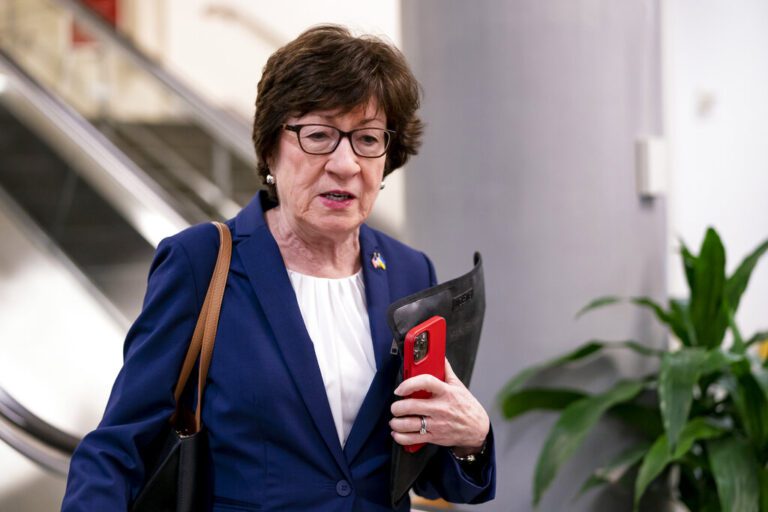Controversy Erupts Over Trump’s Withholding of $4.9 Billion Foreign Aid
The recent decision by President Trump to withhold nearly $5 billion in foreign aid funding, already sanctioned by Congress, has sparked significant backlash from both sides of the political spectrum. Notably, Republican Senator Susan Collins, chairwoman of the Senate Appropriations Committee, has voiced strong opposition to this move, emphasizing its legal implications.
Understanding the Pocket Rescission Strategy
According to Trump’s official letter, announced late Thursday and shared on the White House Office of Management and Budget’s X account, the $4.9 billion will affect various programs, particularly within the Department of State and the USAID. This strategic maneuver is known as a "pocket rescission," a legally questionable tactic that has been dormant for nearly 50 years.
What Are Pocket Rescissions?
- Definition: Pocket rescissions occur when the president announces plans to withhold already allocated funds late in the budget year, making it nearly impossible for Congress to respond.
- Timing: The current budget year ends on September 30, further complicating any potential legislative action.
Senator Collins characterized the move as a blatant "violation of the law," arguing that it undermines traditional bipartisan budgetary processes.
“Instead of this attempt to undermine the law, the appropriate way is to identify ways to reduce excessive spending through the bipartisan, annual appropriations process,” Collins stated in a public announcement.
Implications for the United Nations and Foreign Aid
The fallout from Trump’s announcement is profound, particularly for international relations and funding commitments. The withdrawal of funds includes:
- $3 billion for international development assistance
- $520 million for the United Nations’ regular budget and its agencies, such as UNESCO
- $838 million for international peacekeeping operations
UN spokesman, Stephane Dujarric, expressed concerns regarding the budget’s liquidity situation, stating:
“This is going to make our budget situation, our liquidity situation that much more challenging.”
Bipartisan Repercussions
The fallout from Trump’s decision also threatens bipartisan relations in Congress. Leading Democrats, including Senate Minority Leader Chuck Schumer, criticized the tactic as an attempt to "go it alone" amidst crucial budget negotiations.
"Today’s announcement of the administration’s plan to advance an unlawful ‘pocket rescission’ package is further proof President Trump and congressional Republicans are hellbent on rejecting bipartisanship," Schumer remarked.
The Stakes Before the September Deadline
With the September 30 deadline looming for an agreement on government funding, the likelihood of achieving a bipartisan resolution appears increasingly challenging. Any such agreement will necessitate Democratic support to surpass the 60-vote threshold in the Senate.
Visa Revocation: Impacts on the Palestinian Delegation
In an additional controversial move, the Trump administration has decided to revoke visas for officials from the Palestinian Authority and the Palestine Liberation Organization just before the annual General Assembly meetings.
Riyad Mansour, the Palestinian delegation leader, commented:
“We will see exactly what it means and how it applies to any of our delegation, and we will respond accordingly.”
The U.S. Department of State defended the decision, citing national security interests:
"Before the PLO and PA can be considered partners for peace, they must consistently repudiate terrorism," the statement highlighted.
Summary of Aid and Visa Changes
-
Withheld Foreign Aid: $4.9 billion
- International Development: $3 billion
- UN Funding: $520 million
- Peacekeeping Operations: $838 million
- Visa Revocation: Palestinian officials affected
- Reason: Non-compliance with peace commitments
Conclusion
As the nation braces for the uncertain implications of Trump’s decision, the potential for strained international relations and escalating tensions in Congress remains a central concern. With critical negotiations ahead, both sides must consider the broader impact of their actions on global diplomacy and domestic governance. For ongoing developments and more insights on foreign aid issues, visit USAID and the U.S. Department of State.


